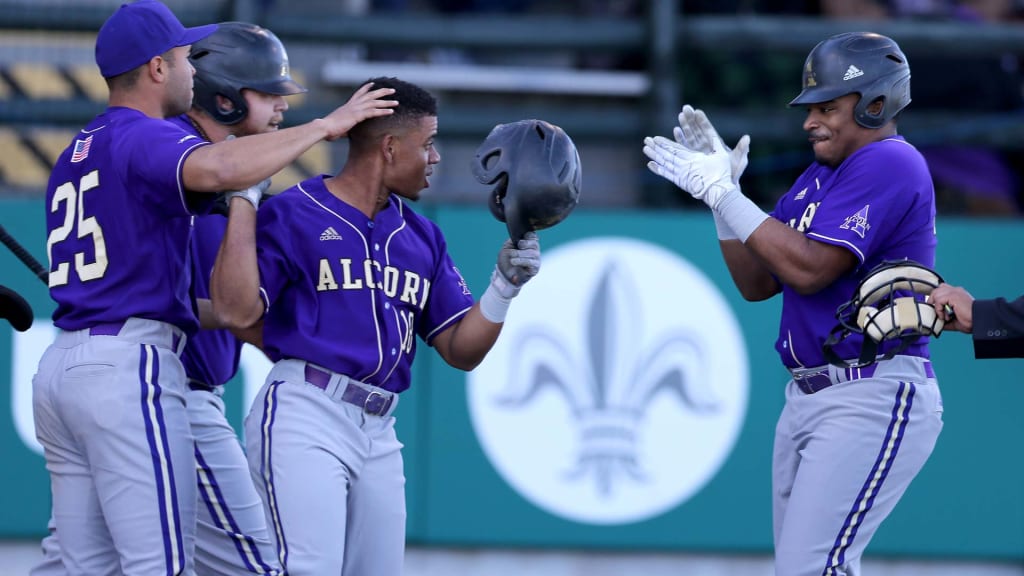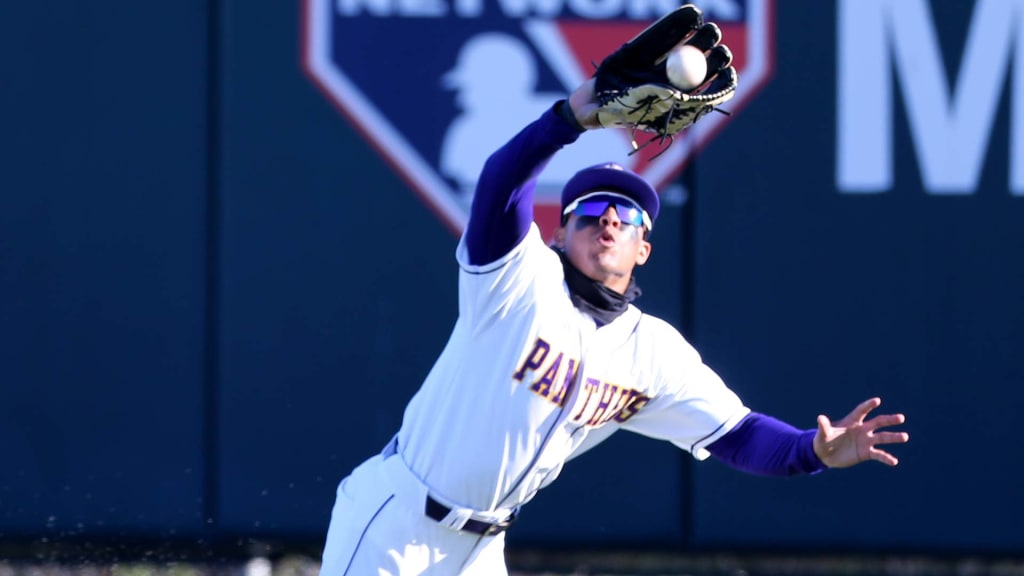NEW ORLEANS -- The college players who are currently participating in the Andre Dawson Classic in New Orleans most likely have spent much of their lives hoping to someday carve out a career in pro baseball. That’s typical of most youngsters, after all.
But the reality is, most of the players enrolled in this tournament will not play baseball professionally. That's the case for the majority of student-athletes across the board in all sports, whether it's baseball, football or basketball, or any of the lesser-celebrated athletic programs. The sports career ends when graduation rolls around, and, soon after the cap is tossed into the air, it's time to start the next chapter.
For many college grads, the transition can be daunting. For a certain population of student-athletes who have played in one or more of Major League Baseball's amateur events, that transition can be made easier, with a little help in the form of a nudge in the right direction.
Take for example the current Andre Dawson Classic. Seven colleges are represented -- six of which are Historically Black Colleges and Universities (HBCUs) -- and before it started, all participants were reminded of the opportunities in baseball that may be possible when they've completed their degrees.
"We know there's a great pool of talent that's here and also at many historically black colleges and universities around the country," said Tyrone Brooks, senior director of MLB's Front Office and Field Staff Diversity Pipeline program. "We're trying to make sure we're getting in front of those student-athletes, make them aware that there is great possibility of working in the game of baseball."
The night before the Andre Dawson Classic began, Brooks addressed the group of participants, giving them a primer about the diversity pipeline program and what it can do to help them. Various programs are set in place that offer fellowships and internships, which can also lead to permanent employment in the baseball industry.
The session is informative, and perhaps eye-opening, for the players, and gratifying for the coaches who pour their energies into preparing their players not so much for baseball after college as much as simply life after college.
"We talk about whether or not these kids will have the actual ability to play at the next level, but some of those guys will have the opportunity to work at the next level in baseball," said Alcorn State head coach Bretton Richardson. "If they can't get an opportunity to play, but you love the game and want to stay around it, absolutely, that's an opportunity to go out there and continue to do what you love."

But first things first. This weekend's tournament is all about baseball, and by the end of the day Sunday, 12 games will be played in the seven-team tournament featuring Prairie View A&M, Alabama State, Alcorn State, Southern University, the University of Arkansas at Pine Bluff, Grambling State and the University of New Orleans. Two games on Saturday will be televised by MLB Network, and a slew of dignitaries are scheduled to appear at the MLB New Orleans Youth Academy, including the tournament's namesake, Hall of Famer Andre Dawson.
So the focus, for now, isn't so much on what's next as much as it's making sure the young players are enjoying the thrill of what's happening in present times. But for the coaches who lead these teams, the long-term effects of the tournament, and the support of MLB, provides invaluable assistance in something they do every day: preparing student-athletes for the future.
"Most of these kids won't play baseball after they leave here," said Auntwan Riggins, head coach of Prairie View A&M. "I'm always talking to them about baseball having millions and millions of life lessons to it. Sports are somewhat similar to corporate America in how it prepares you for corporate America -- all the good and the bad. It's very important for me that these kids understand the importance of the game itself, but also how it sets you up for things after your playing career is over."

In its diversity pipeline program, talent evaluators are on the lookout for high achievers on the academic side who found a disciplined, healthy balance as ballplayers during their college years. There’s a process in place that allows MLB to meet them, evaluate them and find a place for them in the industry, if they find the right fit.
What better place to locate this talent than at a tournament hosted by people with an active interest in what comes next?
"One great thing about college athletics in general are the life skills you're going to pick up day in and day out at the collegiate level," Brooks said. "There's a lot that they're going to gain from all the practices. Their routine they've created, all the work that's put in place to allow them to have a chance to succeed at that level, academically, athletically. There's value what they can bring to an organization both inside and outside of baseball because of that."
